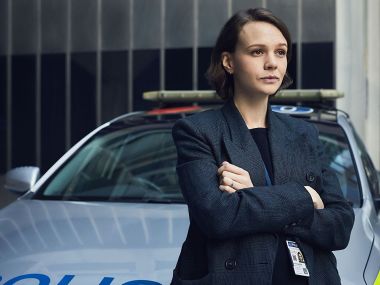The first half hour of the Netflix and BBC2 co-production Collateral feels like a rip-off of the ‘almost great’ HBO mini-series The Night Of. It meanders through the dark alleys of a London suburb, trips on shadowy individuals with hoodies and comprises more than one scene of full-handed banter suggestive of an underbelly, like only the British would. Abdullah, a Syrian refugee and a pizza delivery man, is shot in the chest after making a delivery in a building. What ensues is not so much a procedural — which the series writer David Hare
himself claims it isn’t — but a deft exploration of conscience and the way it shapes actions, be it good or bad. Unlike The Night Of that trailed off poorly after mid-point because it became too self-aware of its against-odds heroism, Collateral demands both your attention and forgiveness. Attention because it isn’t a procedural at all as it does not harp around the misery of not knowing and gives away the mystery soon enough; forgiveness, because it does so quickly with healthy conviction, the kind that can put off the audience. The best thing about Collateral, therefore, is also one of the worst things about the show, depending on how you look at it. [caption id=“attachment_4406181” align=“alignnone” width=“825”] Carey Mulligan in Collateral. Netflix[/caption] The first half hour of the show is an ode to London’s streets and alleys. The direction is meticulous and enmeshes a great deal of politics, unease and roughness without actually saying much. It is a state-of-the-country show and you get a sense of it right away. That said, there is very little cogency in the way the script shifts, not gears, but characters. Carey Mulligan, who plays the oddly named Detective Inspector Kip Glaspie is assigned to solve the case and track down Abdullah’s killer/killers. In this far-fetched rigmarole, it turns out the woman to whom Abdullah made the pizza delivery was the local MP’s (John Simm) ex-wife; and the only witness (sort of) to the crime is an illegal Vietnamese migrant. Collateral spends little time connecting the dots because it operates — from the get go — with a well drawn map. It rarely fumbles for the sake of mystique or jaw-dropping revelations. It goes for pure intrigue in human conscience – why, why at all. As Kip and her affable assistant Bilk (Nathaniel Martello-White) try to solve the not-so-much-a-puzzle, the show can be deemed apathetic to the binge-watcher’s habit of wanting all the rabbits to come out of a hat. Here there are only the rabbits. Collateral attempts to tackle the migration crisis and it goes a long way in exploring each facet of the problem. Abdullah’s sisters, who hold the key to the case embody the dilemma of trust in the face of fear; the murderer embodies the brittleness of institutions. Carey Mulligan approaches her role with great empathy, tying sanity to the sword with an attitude that warrants the long history of detectives in fiction. Collateral isn’t about Mulligan alone (which is ironic), but she holds together the wrinkles and threads like few have in recent television history. In the annals of detectives, especially women portrayed on screen, Mulligan finds middle ground between Happy Valley’s Sarah Lancashire and The Killing’s Mireille Enos. An extraordinarily soft yet controlled character, Mulligan’s presence elevates and humanises every scene she is in. Her performance has a flourish of superiority that unfortunately washes others away. Everyone else in the show pales in comparison. For a TV mini-mini-series (about 4 hours), Collateral manages to ask important questions but doesn’t provide any answers. It is timely and draws the eye on a number of issues – Britain’s policy on migrants, the struggle of the refugees, the army and its corrupt backbone and so on. But while it regards itself a vehicle of socio-political drama, its flaws appear from the same cloth it so enthusiastically wants to wear. Both politics and the law play heavy sympathisers of the migrant situation. “Is this the best we can offer?,” Mulligan asks in a scene. On the side of the victims, the dream to live in a London suburb is sold as a dream that contrasts with show’s affirmations. “I don’t want to leave England,” a sobbing illegal migrant says. All of which is more padding than plate for the whole Brexit debate. The show had plenty of scope but is left unexplored, including troubling yet interesting tangents that could have addressed the church and the military at length as well. All of that is compromised perhaps due to the show’s short run-time. In all, Collateral is worth the time, for its investment in scraping conscience and for engineering its turns around people, rather than incidents and situations. It doesn’t poke around the mystery as much as it does about the miseries. The investigative bits may be loony and unsophisticated but if they did the show would only be selling itself short. It begins with a murder but blooms into so much more. And at the heart of it all is a terrific, tender performance by Carey Mulligan; a role that demands its own personal moment in the sun. Collateral is available for streaming on Netflix Watch the trailer below:
Collateral attempts to tackle the migration crisis and it goes a long way in exploring each facet of the problem
Advertisement
End of Article


)
)
)
)
)
)
)
)
)



